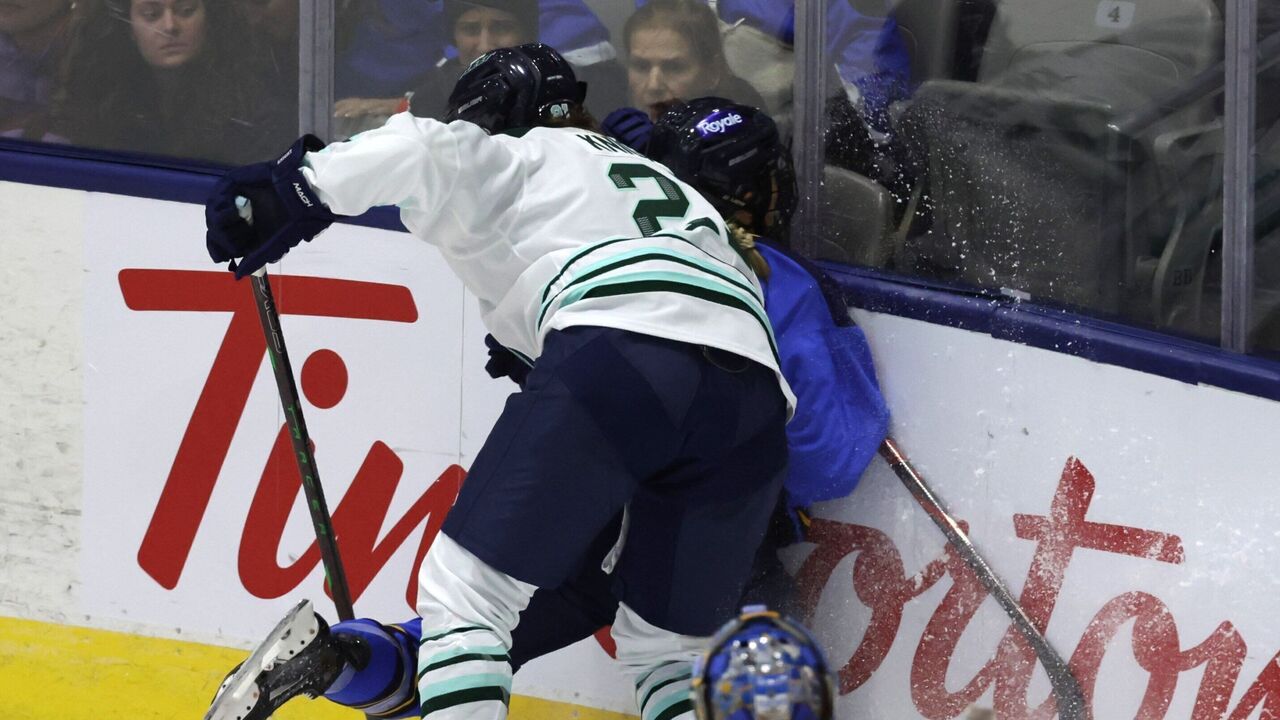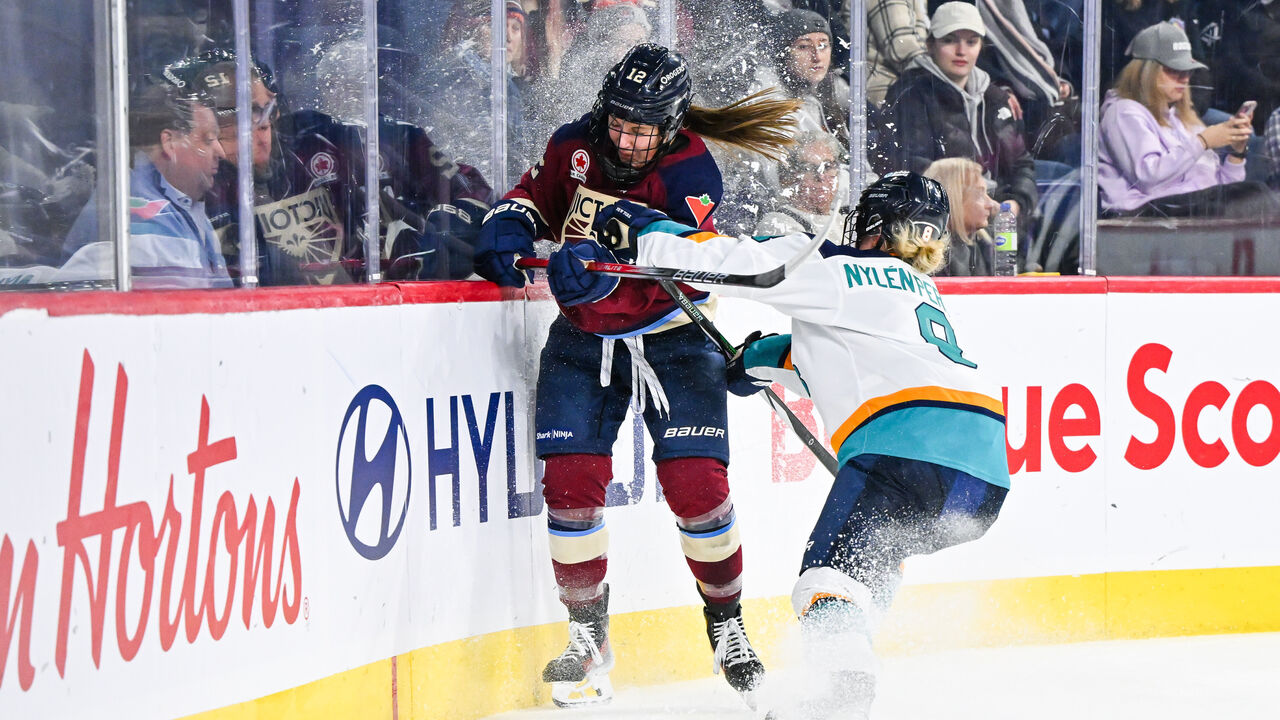Increased physicality sets tone for 2nd PWHL season
It's only three games into the PWHL's second season, but Toronto Sceptres veterans agree on how the game has evolved from the league's inaugural campaign. It was almost as if the thought came to defender Renata Fast and forward Emma Maltais at the same time: This year is a lot more physical.
"(We) were in the locker room the other day just looking at each other, being like, 'We're getting smoked out there, everywhere,'" Fast said this week. "And I think we're two players who like to be physical."
Fast and Maltais aren't the only two who have noticed the uptick in physicality. It's one of the most common topics fans ask the players about. "'How do you guys like the hitting and rule changes, adding that to the women's game,' that's a pretty common (question)," Boston Fleet goalie Aerin Frankel said. "I think people are pretty interested in that aspect."
That curiosity makes sense - the PWHL is the most physical version of women's hockey most fans have ever seen. Checking isn't allowed in minor hockey or college hockey, but from the outset, the league made it clear the PWHL would be different. The rules allow body contact when playing the puck. Opposite direction open-ice hits are still illegal, but the overall change generated a more aggressive style of play. After having a year to adjust to the physicality, players are taking advantage.
This season's increase comes after players had a full summer to prepare. "Given the physicality of the league last year, I think there was an emphasis on everyone to build some shoulder strength and make sure you're staying protected and can survive the whole season without injuries," Fast said.

The officiating has also adjusted. While there might have been some ambiguity last season, this year, players have a better sense of what officials will call. "It's been a work in progress, there's no doubt about it," Fast said. "It's new to the players, it's new to the refs, it's new to the league in order to put a protocol in place. But I think something they made clear coming into Season 2 is that head contact and opposite-direction hits were going to be a focus for them to make sure there is discipline for that.
"As players, we realize that everything's new and it's going to take time for things to be sorted out and for calls to be made on a consistent basis."
Then there's the added element of confidence on the ice; some players say they can just sense it in themselves and their opponents. New York Sirens captain Micah Zandee-Hart attributes this to the amount of hockey they've played in the last 12 months. "When we started this league last year, we had some players who had gone a couple seasons where they maybe only played 20 games, or maybe less than that," she said. "We had some players who didn't have a ton of gameplay coming into a 24-game season. Whereas this year, we had girls from last year who have played a full season and this year's draft class who were coming from a (college) season previous as well. I think it has just made the transition to gameplay a bit easier and there hasn't been as much of an adjustment period - leading to some of the confidence you're seeing."

The infusion of talent via this year's draft has also improved the product. "It was a really special draft class with players coming from Europe, NCAA, and U Sports," Zandee-Hart said. "We had players who were maybe coming out of five-year college seasons where they had lots of chances to develop, we had players who were in college but had international experience, and we had players coming from international experiences like in Sweden."
Those players took the ice in training camp with a clear sense of the skills they needed to learn in order to navigate the physicality of the PWHL. "The physicality is a lot more than what I'm used to in college," said Sceptres rookie Izzy Daniel. She added that other players admitted the intensity has ratcheted up a notch this season. "It's been an adjustment, just putting myself in positions where I'm not going to hurt myself or take a big hit. That's something I'm trying to learn - to minimize the contact I take as a smaller player."
The result has been a faster, more competitive game. "The depth across everyone's lineup chart is insane this year. You're going to get everyone's best on any given night and no matter what line's out there," Ottawa Charge defender Ashton Bell said.
Last year might have been a season of historic firsts, but if the on-ice action so far is anything to go by, this season's main theme might be physicality. "I know that's something the players are really excited about, and the fans too," Fast said.
Jolene Latimer is a feature writer at theScore.
HEADLINES
- Pelicans overcome AD's 35-point night to win 5th straight game
- Purdy's 5 TDs lead 49ers past Rivers, Colts on MNF
- Pacers' Carlisle wants NBA to review play that injured Jackson
- Bills, Chargers, Jaguars book playoff spots after Colts' loss to 49ers
- Brown scores 31 to help Celtics erase 20-point deficit vs. Pacers